


Research
This is where we bring you insights from the latest peer-reviewed studies on bee nutrition and its impact on colony health, productivity, and vitality. Here, you’ll find key takeaways and easily digestible summaries of cutting-edge research, highlighting the critical role of full-spectrum nutrition. These science-backed insights empower beekeepers to make data-driven decisions that support healthier hives and foster more sustainable beekeeping practices.
importance of Protein to lipid ratio
Optimal Brain Function
An imbalance in protein to lipid ratios can negatively affect brain function in bees. Proper ratios ensure healthy neurological development and cognitive function, which is crucial for foraging, communication, and navigation.
Immune system support
The right balance of proteins and lipids helps boost bees' immune systems. Proteins provide essential amino acids for immune responses, while lipids, particularly essential fatty acids, help protect cell membranes from oxidative stress.
energy and vitality
Lipids are a dense source of energy, while proteins are necessary for muscle maintenance and repair. An ideal ratio ensures bees have both the strength and stamina for long foraging flights, hive maintenance, and brood rearing. It also helps aid in the development of royal jelly.
reproductive health and longevity
Both proteins and lipids play critical roles in queen fertility and the development of healthy larvae. A balanced diet promotes reproductive success and extends the lifespan of bees, leading to more robust colonies.
Gut Microbiome
An imbalanced protein to lipid ratio has been shown to disrupt a healthy gut microbiome in the bee's digestive track. This leads to an overall decline in colony health.
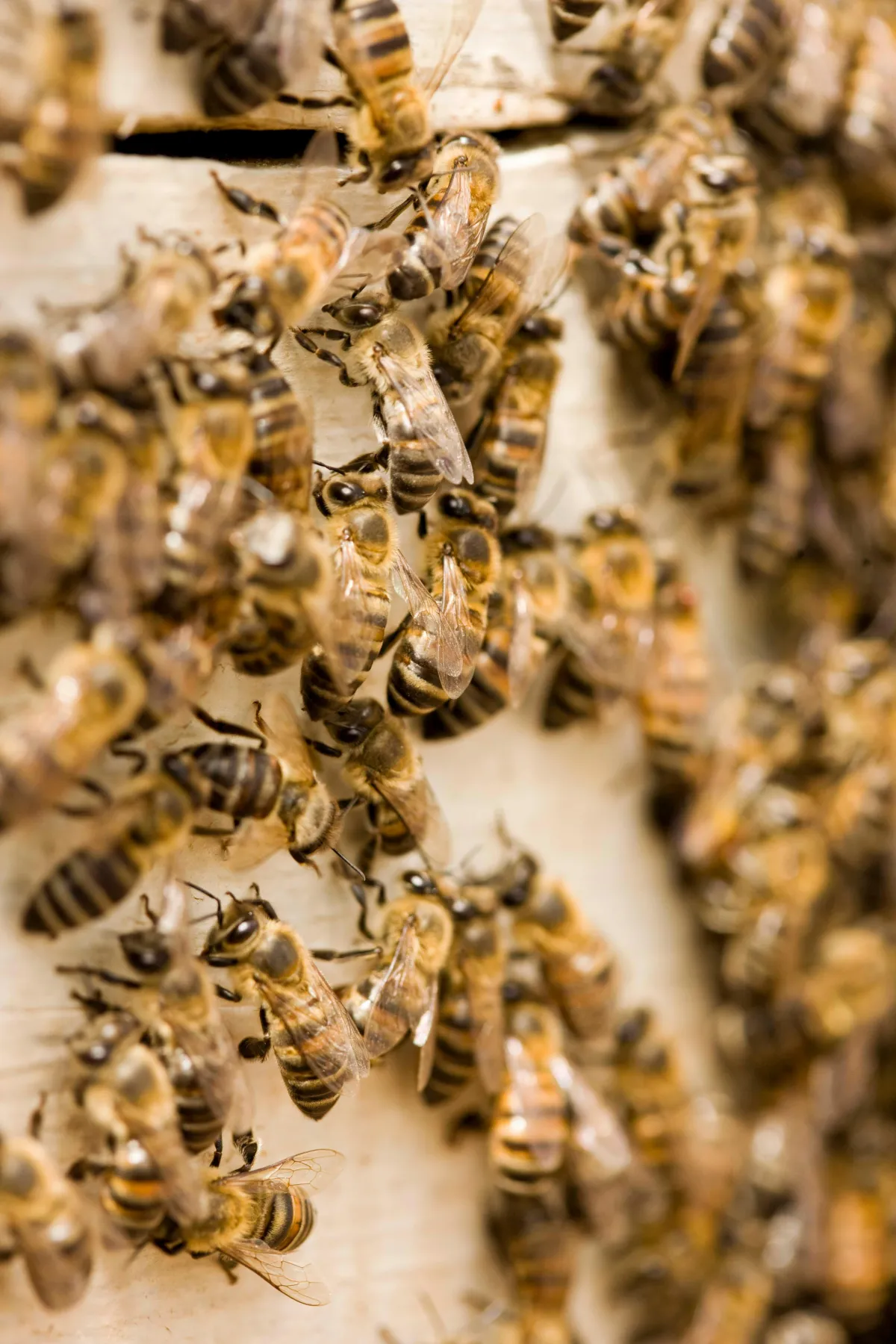
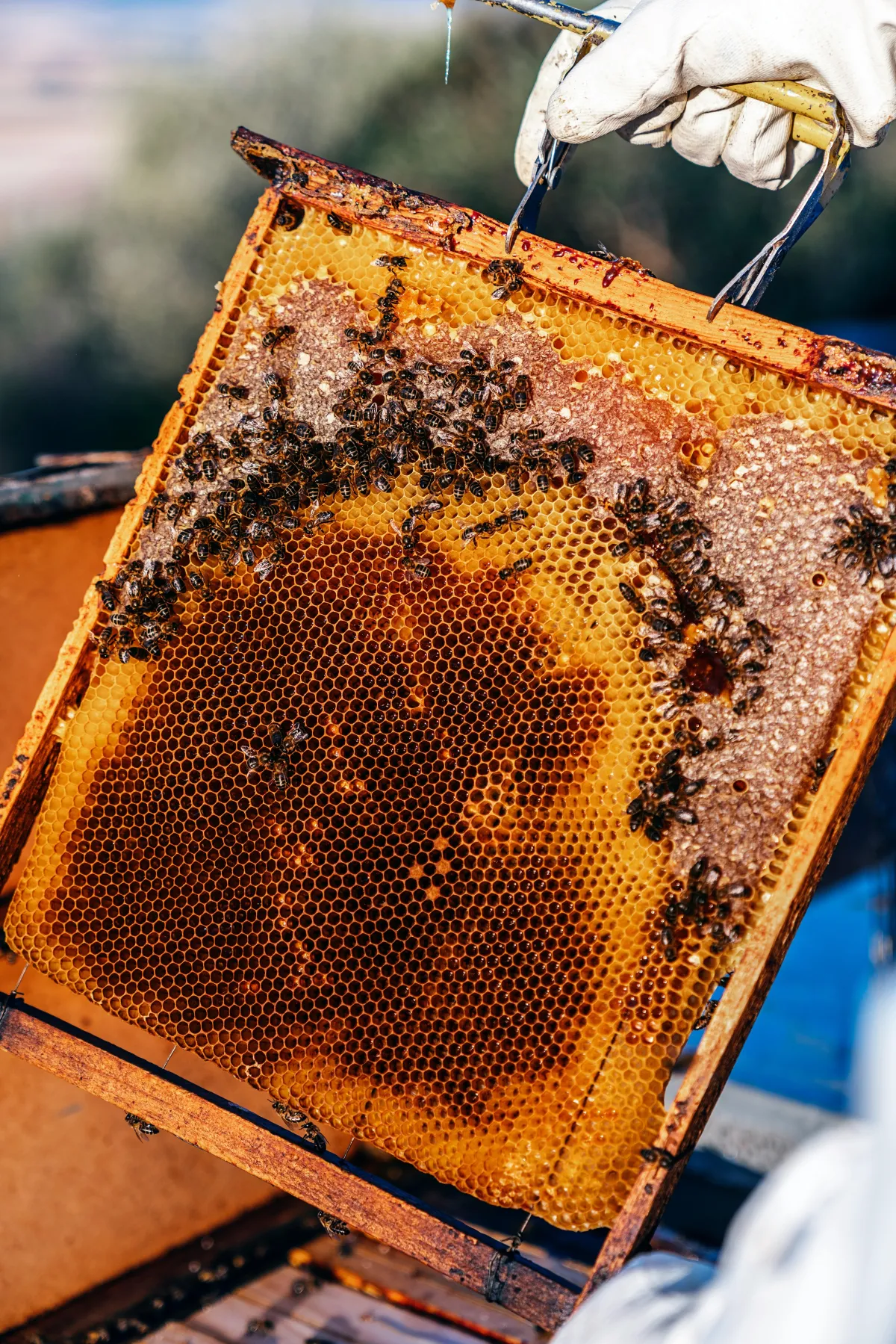
properly balanced Omega ratio
inflammation control
Omega-6 fatty acids promote inflammation, while Omega-3 fatty acids have anti-inflammatory properties. A balanced ratio helps regulate inflammation within the hive, reducing stress on the bees and supporting overall health and recovery from infections or injuries. If bees consume too much Omega-6, their lifespan will shorten and suffer from improper gut health.
immune function
Omega-3s play a significant role in boosting the immune system by promoting the production of anti-inflammatory compounds. Too much Omega-6 can suppress these benefits, weakening bees' defenses against pathogens and parasites like Varroa mites.
cognitive Ability
Omega-3s are essential for maintaining healthy brain function. A proper Omega-6 to Omega-3 ratio supports learning and memory, which are critical for effective foraging and navigation. Imbalanced ratios can impair these cognitive functions, leading to poor colony performance.
reproductive success
Both Omega-3 and Omega-6 fatty acids are important for egg production and larval development. An ideal balance supports the fertility of queens and the health of brood, ensuring strong colony growth and survival. Additionally, properly balanced fats will lead to proper sex organ development.
digestive health
Studies show that the Omega-3 and Omega-6 fatty acid balance have a greater effect on microbial colony diversity than protein to lipid ratios. An unbalanced fatty acid ratio will cause disruptions in digestive health and vitality.
lipids for proper role shifts and health
energy for role transitions
Lipids provide a dense source of energy that is essential for bees as they transition through different life stages and roles within the hive. Whether a worker bee is shifting from nursing duties to foraging or taking on hive defense, sufficient lipids ensure they have the energy to carry out these demanding tasks efficiently.
HORMONAL regulation
Lipids are key components in the synthesis of hormones such as juvenile hormone, which governs the timing of role shifts in bees. Adequate lipid intake supports hormonal balance, enabling smooth transitions between worker roles like nursing, cleaning, and foraging.
A lipid-rich, full-spectrum nutrition diet will allow queens to properly form an abundance of mandibular pheromone positively influencing bee behavior, and drones to produce higher-quality, viable sperm which improves DNA transference, pregnation, and hormone development.
Cell membrane integrity and function
Lipids are crucial for maintaining the integrity of cell membranes in bees' bodies. This is particularly important as bees age and take on more physically demanding tasks, ensuring their cells remain healthy and functional as they experience oxidative stress during activities like foraging.
Lipids ensure proper membrane formation which leads to cellular communication and intake of nutrition.
immune and stress response
Lipids, particularly essential fatty acids, help bolster bees' immune responses and provide resilience to environmental stresses such as exposure to pesticides or pathogens. This allows bees to adapt and remain healthy when transitioning to more exposed roles, like foraging, where stress and pathogen exposure are greater. A greater storage of lipids leads to a greater production of immune cells.
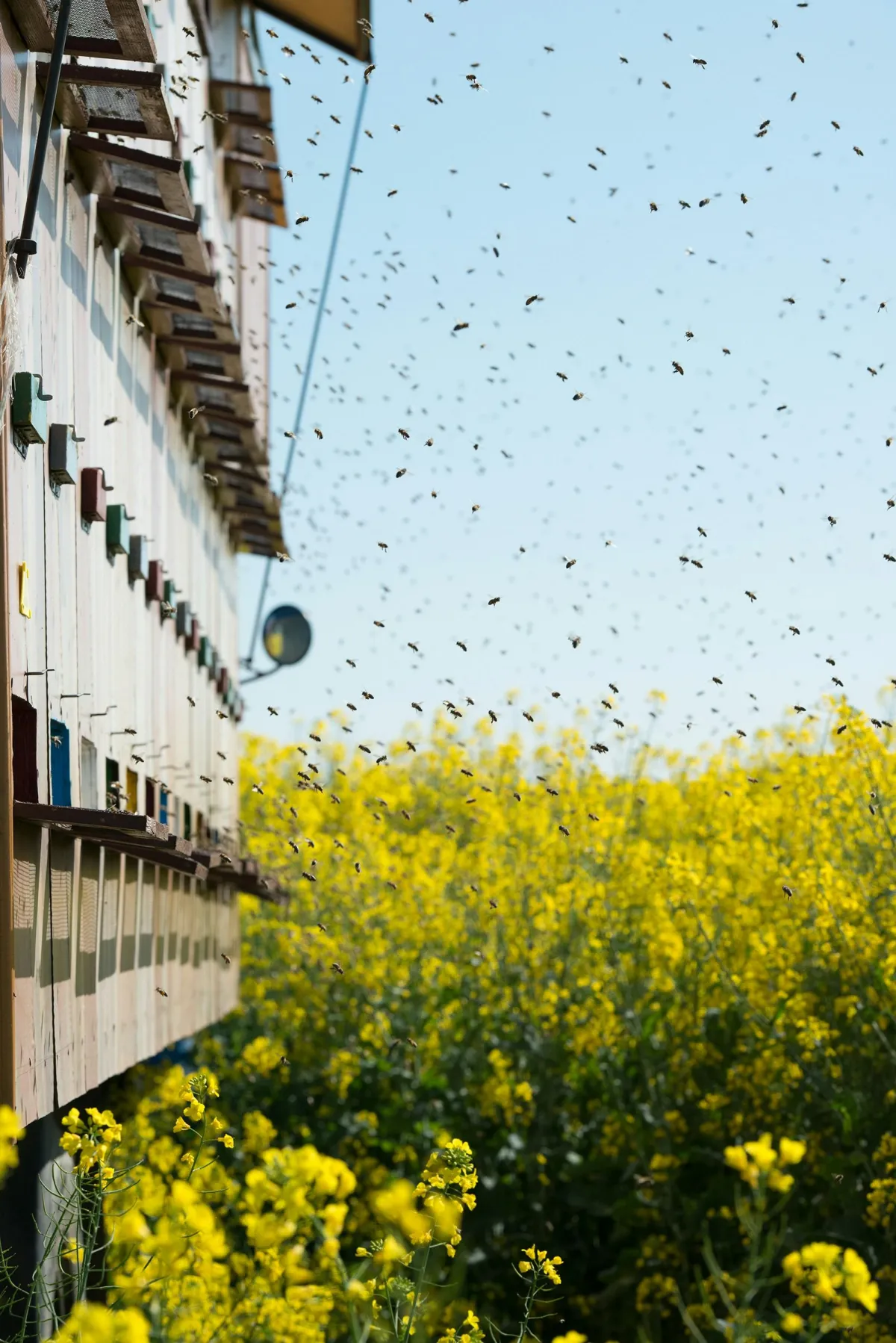
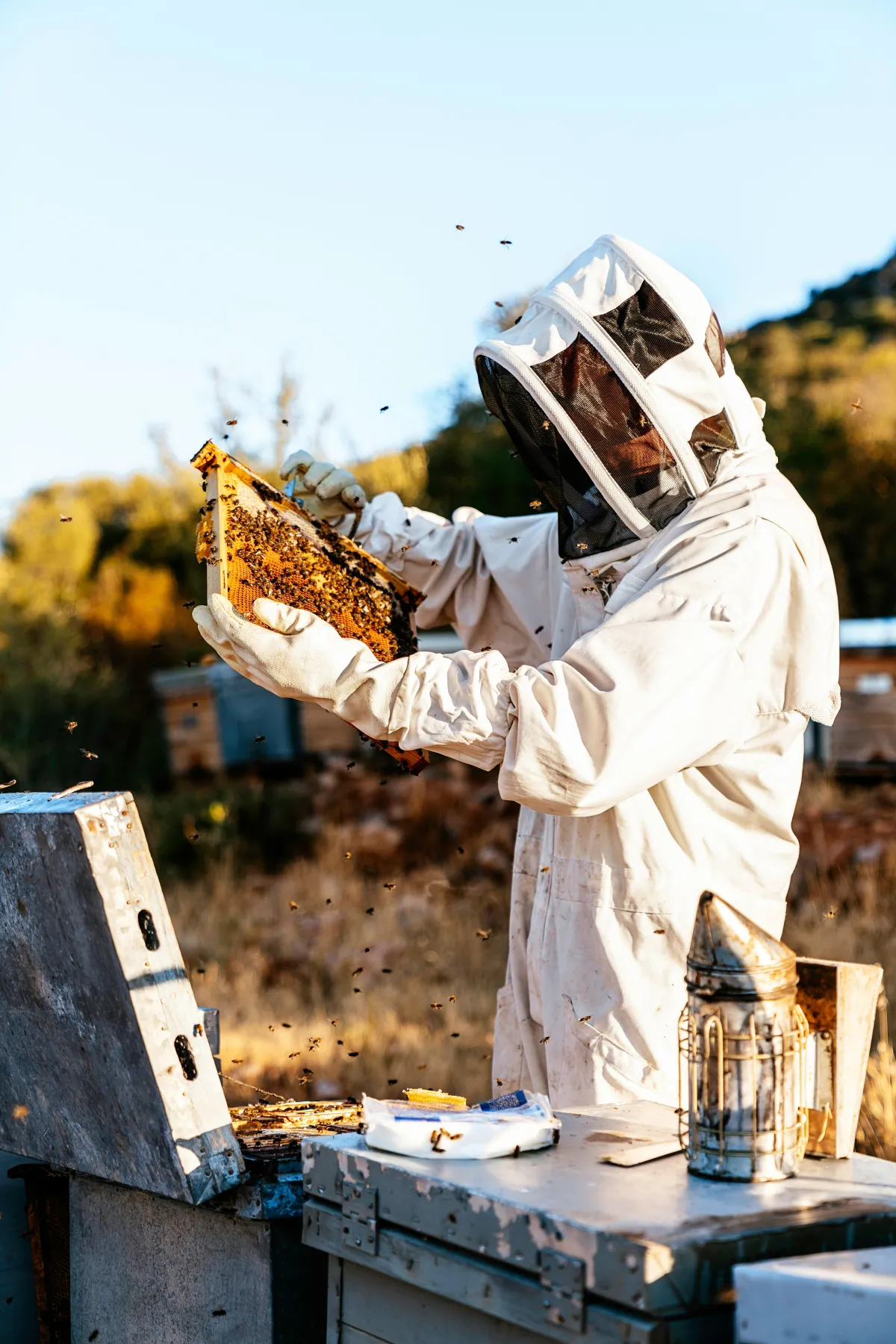
role of nutrition in detoxification
enzyme activation
A balanced protein-to-lipid ratio aids in the production of detoxifying enzymes, particularly those involved in the cytochrome P450 enzyme system, defensinI, and superoxide dismutase. These enzymes are critical for breaking down pesticides, toxins, and other harmful chemicals that bees may encounter in their environment.
immune system support
Adequate protein intake ensures that bees can produce vital immune proteins, such as antimicrobial peptides. These compounds help bees defend against pathogens and harmful microbes, improving overall resilience and reducing the load of toxins on the body.
Cell membrane integrity and function
Lipids, especially essential fatty acids, support healthy cellular function, including the cells responsible for detoxification in the bee’s fat body, which acts like a liver by processing and neutralizing toxins. Lipids also support a fluid mosaic which allows for plasticity in cellular membranes.
Oxidative stress reduction
Proteins rich in amino acids like glutathione play an essential role in neutralizing free radicals. Combined with lipids that support antioxidant mechanisms, this helps reduce oxidative stress from toxins, improving bees’ overall detoxification efficiency.
removal of free radicals
A full spectrum nutrition diet ensures that the Malpighian tubules, which filter waste and regulate water balance in bees, function at peak efficiency. This helps detoxify harmful substances, maintain hydration, and support overall bee health and colony productivity.
critical role of gut health
EFFICIENT Nutrient Absorption
A healthy gut microbiome allows bees to efficiently break down and absorb essential nutrients from their food. Beneficial bacteria in the gut help metabolize complex carbohydrates and proteins, providing bees with the energy and nutrients needed for flight, foraging, and other activities.
immune system STRENGTHENING
The bee gut microbiome plays a key role in regulating the immune system, helping to protect against pathogens like bacteria, viruses, and fungi. A strong microbiome can produce antimicrobial compounds that directly combat infections. Beneficial bacteria in the gut, like cytokines and interleukins, can release immune activating signals to the colony.
detoxification and pathogen resistance
A healthy gut microbiome is a first line of defense against viral and pesticide exposure, helping bees detoxify harmful chemicals such as pesticides and breakdown plant toxins. It also reduces susceptibility to diseases like Nosema, which can impair gut function and overall health.
Colony health and longevity
Poor gut health can lead to colony-wide problems, including decreased reproduction rates, shortened lifespans, increased colony collapse disorder (CCD) risks, and greater susceptibility to disease and toxins. A healthy gut helps individual bees thrive, contributing to the colony’s overall productivity and survival.
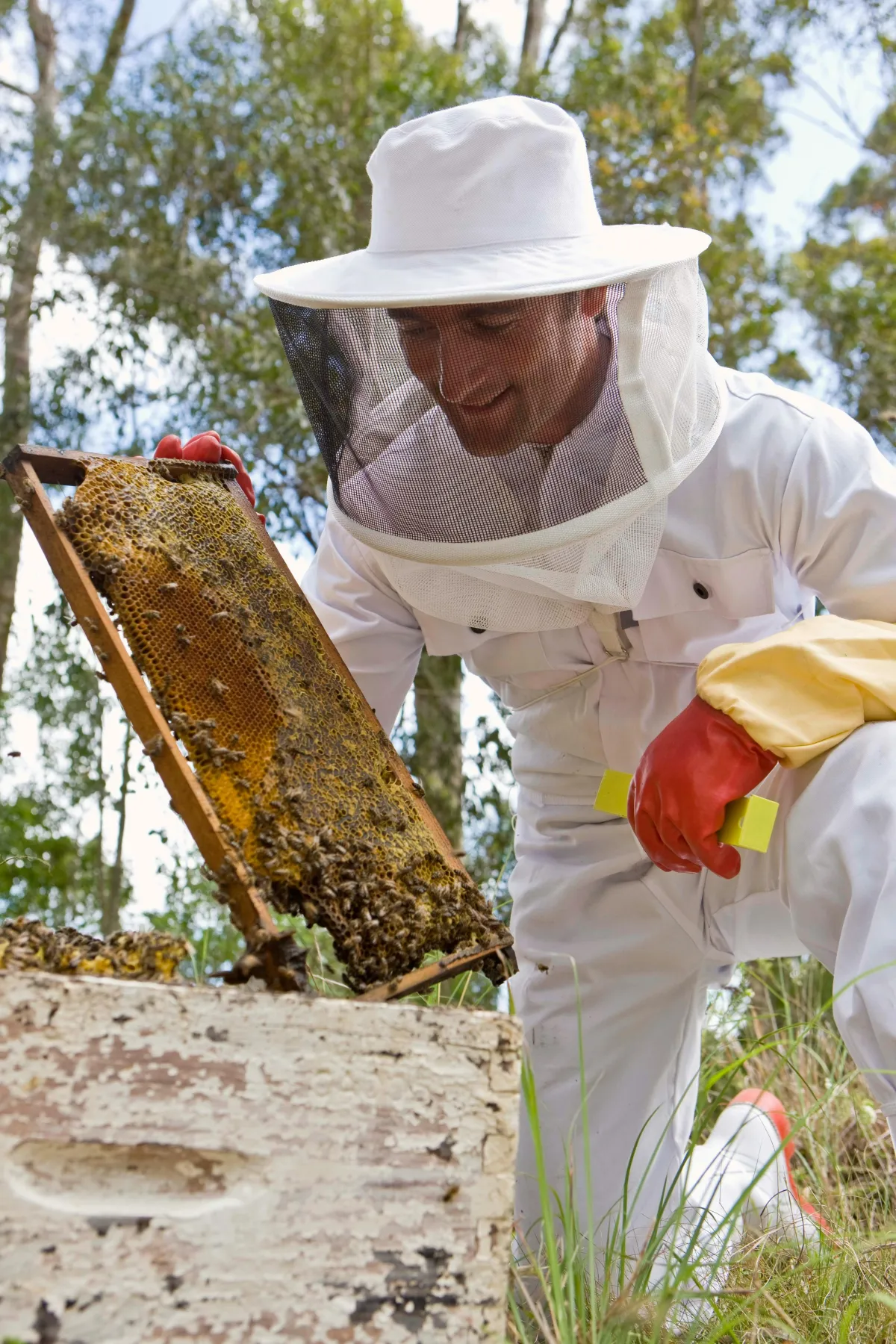
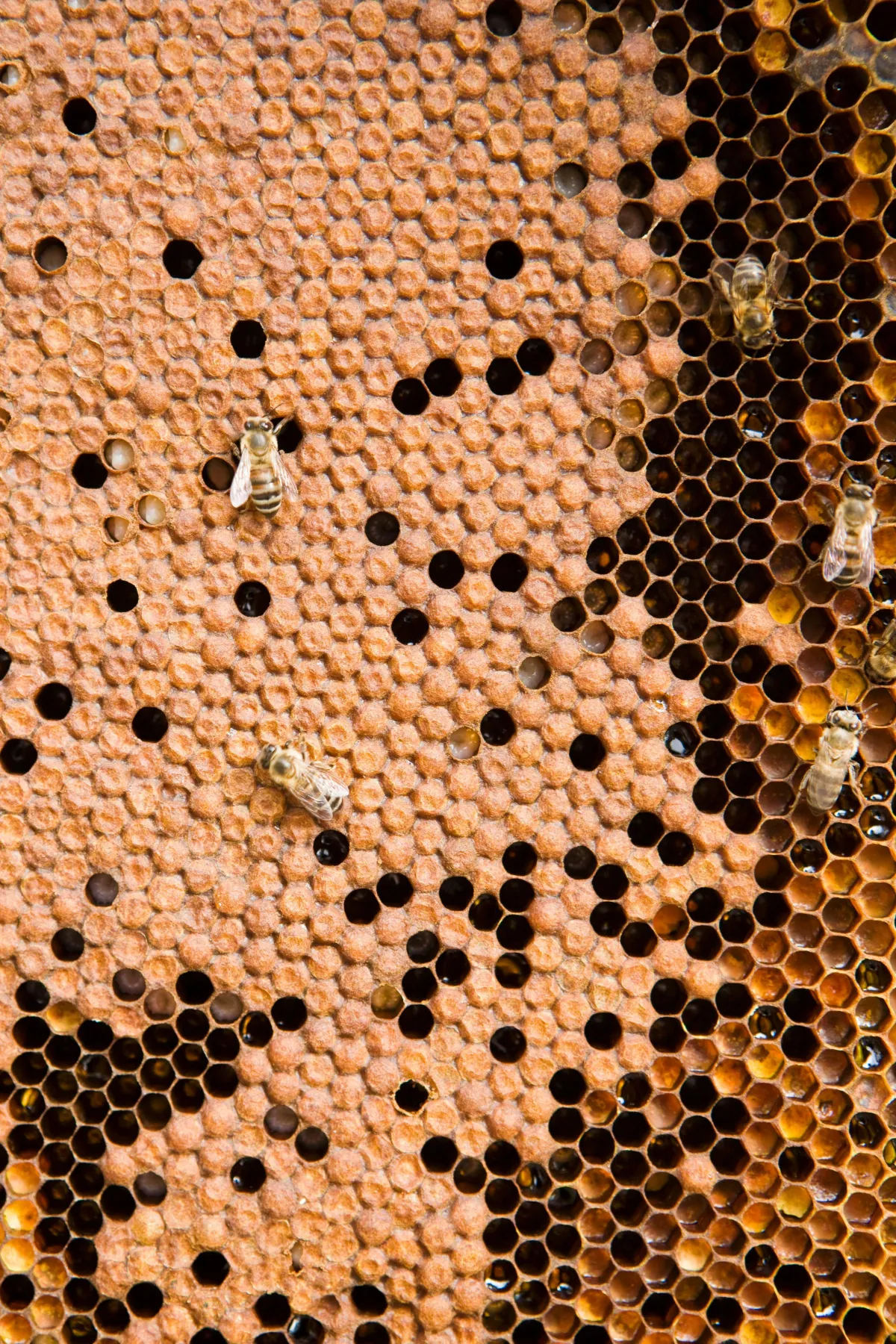
crucial role of Sterols
hormone production & Development
Sterols, particularly 24-methylenecholesterol, are vital precursors for the production of ecdysteroids, the hormones that regulate molting, development, and reproduction in bees. Without adequate sterols, bees may experience developmental delays or issues with metamorphosis. This can lead to CCD.
cell membrane structure & Function
Sterols are essential components of cell membranes, contributing to membrane stability, fluidity, and function. In bees, sterols are involved in maintaining cellular integrity, which is crucial for normal physiological processes such as nutrient transport and cell signaling.
Energy storage & metabolism
Sterols play a role in energy storage and distribution by being part of lipid metabolism. They are involved in the formation of glycerides, which bees use to store energy needed for foraging, thermoregulation, and colony maintenance. Abundant lipids ensure bees have the energy reserves they need, especially during periods of high activity or stress.
signaling molecules for growth & immune response
Phospholipids, which include sterols, are involved in cell signaling pathways that regulate growth and immune responses. This role is critical for colony health, helping bees respond to pathogens and environmental stressors.
functions of carbohydrates
Vital Nutrient Storage for Lean Periods
Carbohydrates stored in the form of honey act as a vital energy reserve during nectar dearths or winter months when foraging is limited. These reserves ensure colony survival by providing a sustained energy supply during periods of scarcity.
Primary Energy Source
Carbohydrates are the main energy source for bees, fueling essential activities like foraging, hive maintenance, thermoregulation, and flight. This high energy demand is especially crucial for worker bees, as they need the stamina to sustain colony operations.
Support for Immune FUNCTION
During colder months or when brood-rearing, bees rely heavily on carbohydrates to generate heat by metabolizing stored honey or syrup. This thermogenesis keeps the hive at the necessary temperature to protect and sustain brood development and maintain colony cohesion.
Temperature Regulation within the Hive
Phospholipids, which include sterols, are involved in cell signaling pathways that regulate growth and immune responses. This role is critical for colony health, helping bees respond to pathogens and environmental stressors.
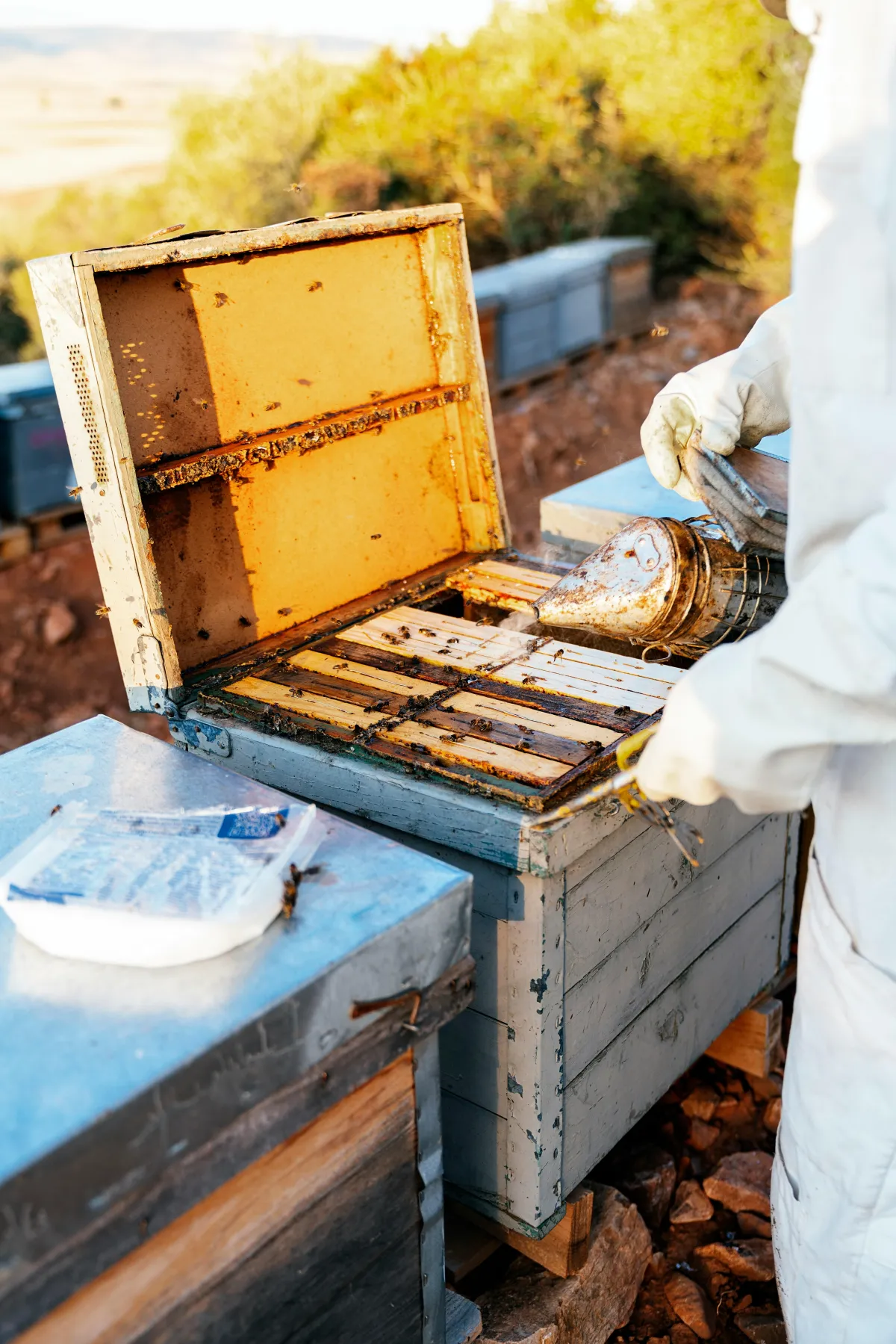
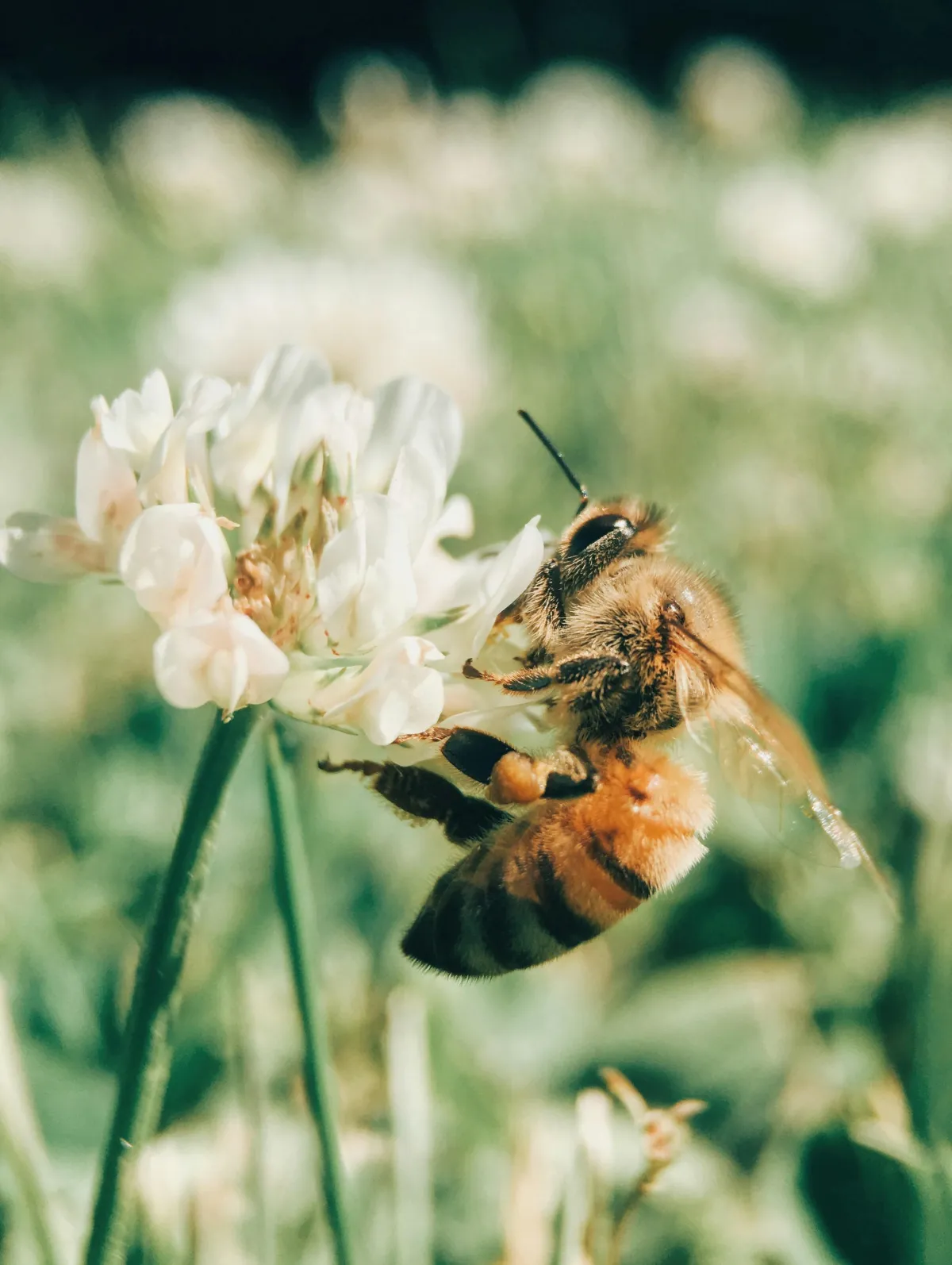
The essential de novo lipogenesis (DNL) pathway
The DNL pathway is a metabolic adaptation that allows bees to convert readily available carbohydrates into lipids, supporting their unique physiological needs, including:
Fat Body Development
In bees, the fat body functions similarly to the liver in other animals, storing energy and metabolizing nutrients. Through de novo lipogenesis, bees convert carbohydrates from nectar into lipids stored in the fat body, which acts as an energy reserve and plays a role in detoxifying harmful substances.
Energy Reserves for Lean Periods
The DNL pathway enables bees to convert excess carbohydrates into fats, which are energy-dense and can be stored for periods when food is scarce. This storage is especially important during winter or nectar dearths, ensuring bees have sufficient energy to maintain colony activities and survive through challenging times.
Lipid Production for Brood Rearing
Bees need specific lipids to support the growth and development of larvae. De novo lipogenesis helps provide the necessary lipids for brood food, which is essential for healthy larval development and future colony expansion.
Production of Essential Signaling Molecules
Lipids play a role in producing pheromones and other signaling molecules that regulate hive communication, social cohesion, and reproduction. The ability to produce lipids through de novo lipogenesis allows bees to maintain these vital functions, contributing to a stable and well-functioning colony structure.
Protection against Environmental Stressors
Lipids also play a role in protecting bees from environmental stresses. The stored fats from de novo lipogenesis can support metabolic processes that help detoxify chemicals and pesticides, buffering the negative impacts of environmental stressors on bee health.
Who we serve

Hobbyist beekeepers
Give your bees the nutrition they need to thrive. With VitalBee™️, you will see the difference in colony vitality resulting in a more rewarding beekeeping experience.
Commercial Beekeepers
Enrich your colonies with the functional nutrition necessary to maintain strong, productive colonies, reducing losses and improving profitability.
What Beekeepers Are
Saying About VitalBee

It's late in the season but I'm seeing dramatic colony growth by feeding
Jerum A
4,000 Colonies

My hives are devouring VitalBee. This is a terrific bee feed.
Russel H
7,000 Colonies
Schedule Your Order for a Sample or a Truckload
Today
Whether you're testing a few hives or scaling up for your whole operation, we make it easy to order, pay, and track your feed delivery.
Schedule Your Order for a Sample or a Truckload
Today
Whether you're testing a few hives or scaling up for your whole operation, we make it easy to order, pay, and track your feed delivery.
Order Form
Unlock Productivity & Profitability for Your Bee Farm Now
Copyright 2025 Natural Bee Care, LLC

For more information about VitalBee™️ and how it can benefit your bees, please contact us at:
9 West Somewhere LN
Albuquerque, New Mexico
123-456-7890
[email protected]
Home Terms & Conditions About Contact

For more information about VitalBee™️ and how it can benefit your bees, please contact us at: